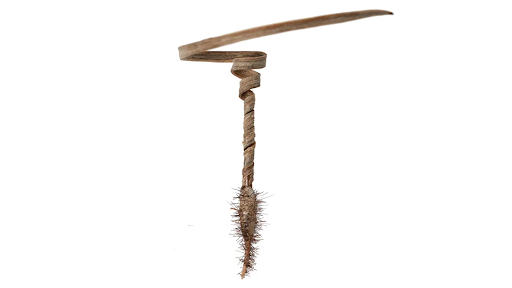In an era where the world’s forests face unprecedented threats, including rampant wildfires and deforestation, an innovation from the Morphing Matter Lab at Carnegie Mellon University offers hope. Under the guidance of director Lining Yao, the lab has developed the “E-seed” carrier, a groundbreaking tool in the fight against climate change and the protection of biodiversity. This invention, powered by rain, could be the key to reforesting our planet’s most remote and challenging areas.
Incorporating Revolutionary Technology
The E-seed carrier, inspired by the natural design of erodium seeds, operates without any external energy source. It utilizes a material that self-drills into the soil in response to rain, mimicking the coil-like drill of erodium seeds. Yao and her team have enhanced this concept by chemically treating white oak wood to become more flexible and denser when wet. This allows the carrier to expand and drill into the soil with an impressive 80% success rate on flat land, as Yao’s research in Nature highlights.
Shu Yang, a professor at the University of Pennsylvania involved in the project, emphasizes the importance of the carrier’s efficiency and success rate in large-scale applications. Matthew Aghai of Mast Reforestation also points out the need for improved drone technology for seed distribution to be truly effective.
Tailoring to Local Needs
A critical aspect of this technology is its adaptability to various environments. Yao stresses the need to tailor the design to local conditions, including different soil types and humidity levels. The Morphing Matter team works closely with local practitioners, requesting seeds and soil samples for validation. This collaborative approach ensures that the seed carriers are effective in diverse ecosystems, from deserts to rainforests.
Challenges and Future Prospects
Despite the enthusiasm surrounding the E-seed carrier, challenges remain. Yao acknowledges the need to scale up production to meet the global demand for reforestation. Additionally, Aghai highlights a broader seed shortage in the industry, underscoring the need for more seed nurseries and storage funding.
The E-seed carrier, a remarkable blend of nature’s ingenuity and human innovation, stands as a beacon of hope in our quest to combat climate change and restore biodiversity. While challenges like seed shortages and the need for better drone technology persist, this invention marks a significant step forward in reforestation efforts. As the world grapples with environmental crises, the E-seed carrier offers a sustainable and efficient pathway to rejuvenate and protect our planet’s precious forests.






















+ There are no comments
Add yours